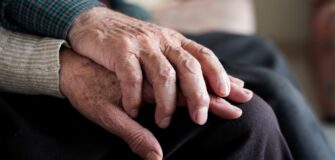Elder abuse, affecting one in six older Australians, is predominantly perpetrated by family members, according to Professor Bianca Brijnath, Director of Social Gerontology at the National Ageing Research Institute.
This form of abuse encompasses various types, including physical, financial, social, sexual and psychological mistreatment.
Tragically, elder abuse often occurs within relationships built on trust, with adult children frequently identified as the main culprits.
Instances of abuse can range from small-scale incidents, such as misusing an elderly parent’s credit card, to more significant acts, like pressuring them to transfer assets or sell their home, only to renege on the promised care and support.
A disheartening aspect is that older individuals, ashamed and feeling trapped, often hesitate to seek help due to the involvement of their own family members.
“It’s a source of embarrassment. They think it’s a reflection on their own parenting,” Bianca said.
“Even if they are desperate, older people don’t want to report their children to the police. They don’t want to seek legal intervention.”
However, healthcare providers play a crucial role in breaking this cycle of abuse. Older people are more likely to disclose mistreatment to their trusted healthcare professionals.
To capitalise on this opportunity, Professor Bianca Brijnath’s research focuses on empowering healthcare providers with the knowledge and skills to recognise signs of elder abuse and make timely referrals to specialised care and social workers. These dedicated professionals can offer comprehensive assistance, including family mediation, financial guidance and housing support.
A groundbreaking support model of care has been developed through collaborative efforts involving family carers, older individuals, hospital healthcare providers and elder abuse experts.
The model encompasses training for healthcare providers on elder abuse identification and screening, the implementation of a screening tool, and the appointment of site champions for additional help and support.
The ultimate goal of Professor Brijnath’s initiative is to foster greater awareness of elder abuse within the healthcare system, equip healthcare providers with the confidence and knowledge to engage with the issue and encourage the use of the screening tool.
If the trial of this support model proves successful, stakeholders aim to expand its implementation in residential aged care and community-based aged care settings.
“We’d love to see this used in residential aged care and community-based aged care,” Bianca said.
The No More Shame project, led by Professor Bianca Brijnath, has received funding of $1.5 million from the Medical Research Future Fund. This significant investment contributes to creating a society that is more attuned to and proactive in addressing elder abuse, ensuring the well-being and safety of older Australians.
Related: New study reveals alarming trends in elder abuse in QLD
Ritchelle is a Content Producer for Healthcare Channel, Australia’s premier resource of information for healthcare.

























